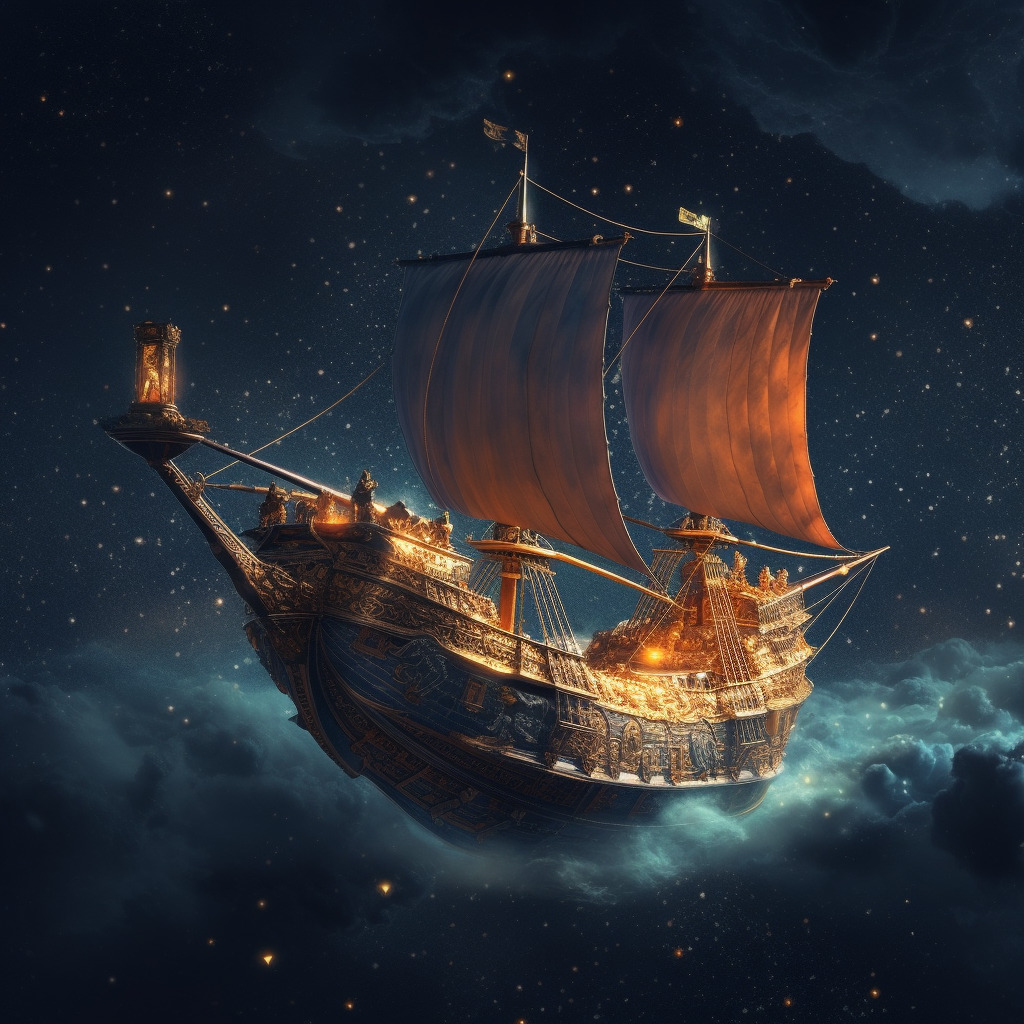
Tl;dr: Space-fantasy is more flying galleons and fantastical worlds, less pew-pew.
Space-fantasy and sci-fi are two related but distinct genres that share similarities in their exploration of futuristic and speculative concepts. While both genres often involve elements of technology, space exploration, and futuristic settings, they differ in their primary focus and tone.
Sci-Fi (Science Fiction):
Science fiction, often abbreviated as “sci-fi,” is a genre that emphasizes scientific and technological concepts and their impact on society. It typically presents imaginative and plausible scenarios that are grounded in scientific principles or extrapolations of current scientific knowledge. Sci-fi often explores speculative ideas, future advancements, and the potential consequences of scientific and technological progress.
In sci-fi, the emphasis is on scientific accuracy, logical consistency, and a rational exploration of the subject matter. The setting and events are often presented in a manner that aligns with established scientific principles or theories, or at least a plausible extension of them. Scientific concepts and themes like space travel, time dilation, artificial intelligence, genetic engineering, or alternate realities are common in sci-fi. The storytelling often aims to provoke thought, explore ethical dilemmas, or raise questions about the human condition in a futuristic context.
Space-Fantasy:
Space-fantasy, also known as science-fantasy, is a genre that combines elements of science fiction with elements of fantasy. It incorporates fantastical elements, such as magic, mythical creatures, and supernatural forces, into a futuristic or spacefaring setting. Space-fantasy allows for a departure from strict scientific principles and embraces elements of wonder, mysticism, and imagination.
In space-fantasy, the focus is more on adventure, heroism, and imaginative storytelling than on scientific accuracy. It may introduce concepts and phenomena that defy scientific explanation or that rely on magical or supernatural elements. The blending of futuristic technology and fantastical elements can create a unique and visually striking universe. Space-fantasy often features epic quests, chosen heroes, ancient prophecies, and conflicts between light and dark forces. Examples of space-fantasy include the “Star Wars” franchise, where the Force and Jedi Knights coexist with advanced technology and space travel.
While both genres deal with futuristic settings and speculative concepts, sci-fi tends to prioritize scientific accuracy and rationality, while space-fantasy embraces elements of fantasy and the fantastical. Ultimately, the distinction between the two genres lies in the tone, focus, and the level of adherence to scientific principles.

